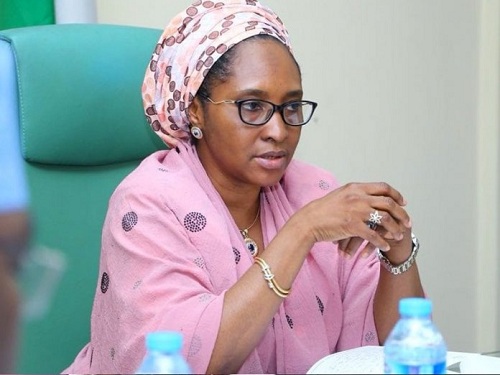This post has already been read 1356 times!
Minister of Finance, Budget and National Planning, Mrs. Zainab Ahmed’s recent declaration that steel boom may lead to Nigeria’s industrialisation merely reiterated the original thinking behind the development of the Ajaokuta and the other steel plants at Aladja, Oshogbo, Jos and Katsina.
In fact, the Third National Development Plan (1975–1980), specifically between 1976 and 1978, set the tone for Nigeria commencing the construction of two integrated Iron and Steel plants located at Ajaokuta (ASC) and Aladja (DSC) and three rolling mills at Oshogbo, Jos and Kastina.
It is, therefore, regrettable that this national objective has not been realised more than four decades since the idea was conceived. The Ajaokuta Steel Plant, which is supposed to be the flagship of steel development in the country, has, unfortunately, remained a white elephant, indeed a major drainpipe through which billions of dollars have been siphoned. Conflicting signals over what the federal government wants to do with the comatose Ajaokuta Steel Mill is causing confusion.
We cannot remain a wasteful nation just as the industrialization dream of the country cannot be aborted. There has to be a way to reposition the country on the path of industrialisation. The failure of Ajaokuta is a huge embarrassment to the nation and its past and present leaders are to blame.
That, perhaps, informed the private initiative to develop a steel plant in Kaduna that the Finance Minister isited, where she declared that Nigeria might join the league of industrialised countries in the next five years with a steady investment in steel sector. The Minister, who made the disclosure during a tour of the steel plant of the African Natural Resources and Mines Limited in Jere in Kaduna State, said if the nation’s steel industry could come on stream, Nigeria would save a lot of foreign exchange because importation of steel would stop. We commend the African Natural Resources and Mines Limited for taking this initiative and urge other private investors to follow suit. The ongoing huge investment in steel will attract auto companies, which can produce cars in the country for Nigerians. Which means the country has a brighter future.
Producing one million metric tons of steel per annum means that Nigeria will really be well on its way of being independent of importing steel into our country and this will attract other investors to come into Nigeria. The benefits of steel in industrial development cannot be overemphasised. Because of its high tensile strength and low cost, steel is used in buildings, infrastructure, tools, ships, trains, cars, machines, electrical appliances and weapons. Iron and steel are used widely in the construction of roads, railways, other infrastructure, appliances, and buildings. Most large modern structures, such as stadiums and skyscrapers, bridges, and airports, are supported by a steel skeleton. Even those with a concrete structure employ steel for reinforcing. There is therefore a widespread use of steel in major appliances and cars.
Despite growth in usage of aluminum, steel is still the main material for car bodies. Steel is used in a variety of other construction materials, such as bolts, nails and screws and other household products and cooking utensils.
With the advent of speedier and thriftier production methods, steel has become easier to obtain and much cheaper. It has replaced wrought iron for a multitude of purposes. However, the availability of plastics in the latter part of the 20th century allowed these materials to replace steel in some applications due to their lower fabrication cost and weight. Interestingly, carbon fibre is replacing steel in some cost insensitive applications such as sports equipment and high end automobiles.
The foregoing highlights the critical importance of steel in industrial development. The onus is on the federal government to re-strategise and ensure that the dream of making Nigeria a major steel producer is realised, for without steel all the talk about industrialization in the country will remain a pipe-dream. In the main, the iron ore raw material for making steel, which abounds in the country should be utilised to achieve the industrialisation dream.



